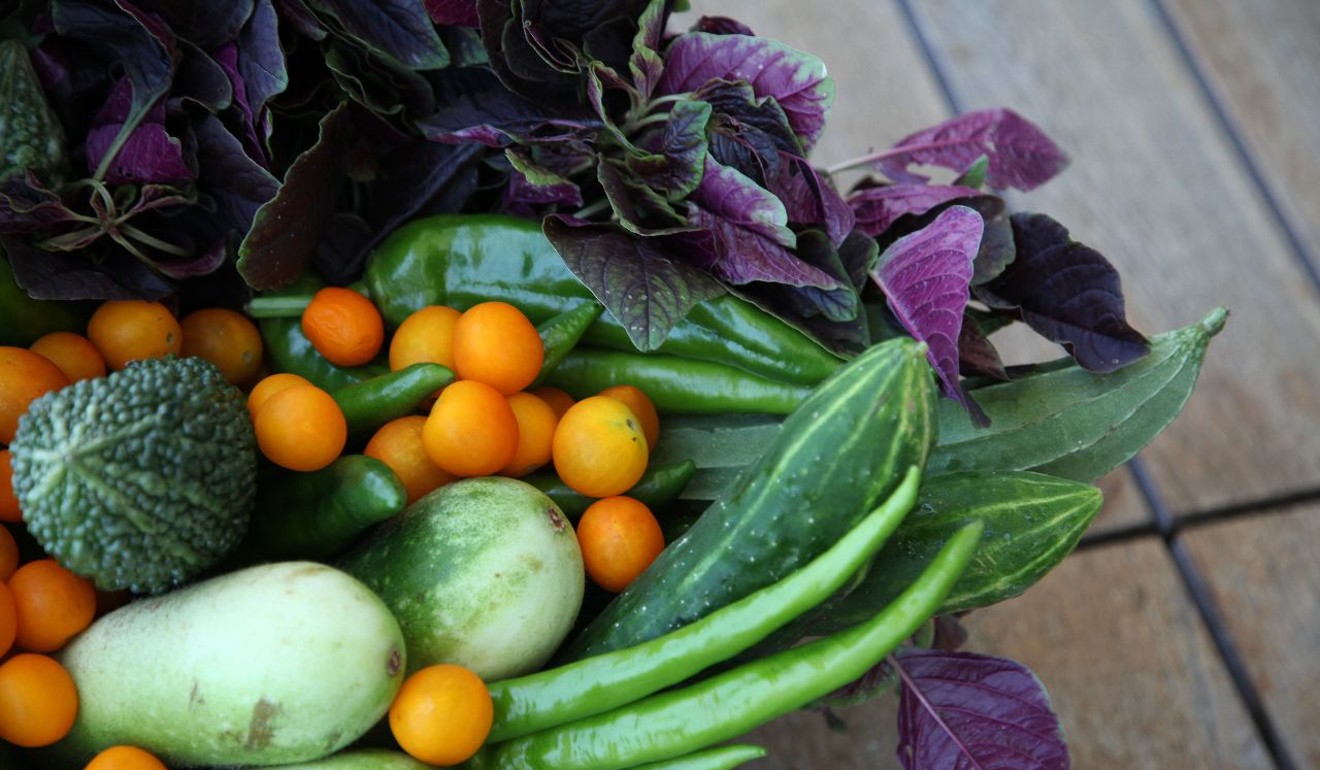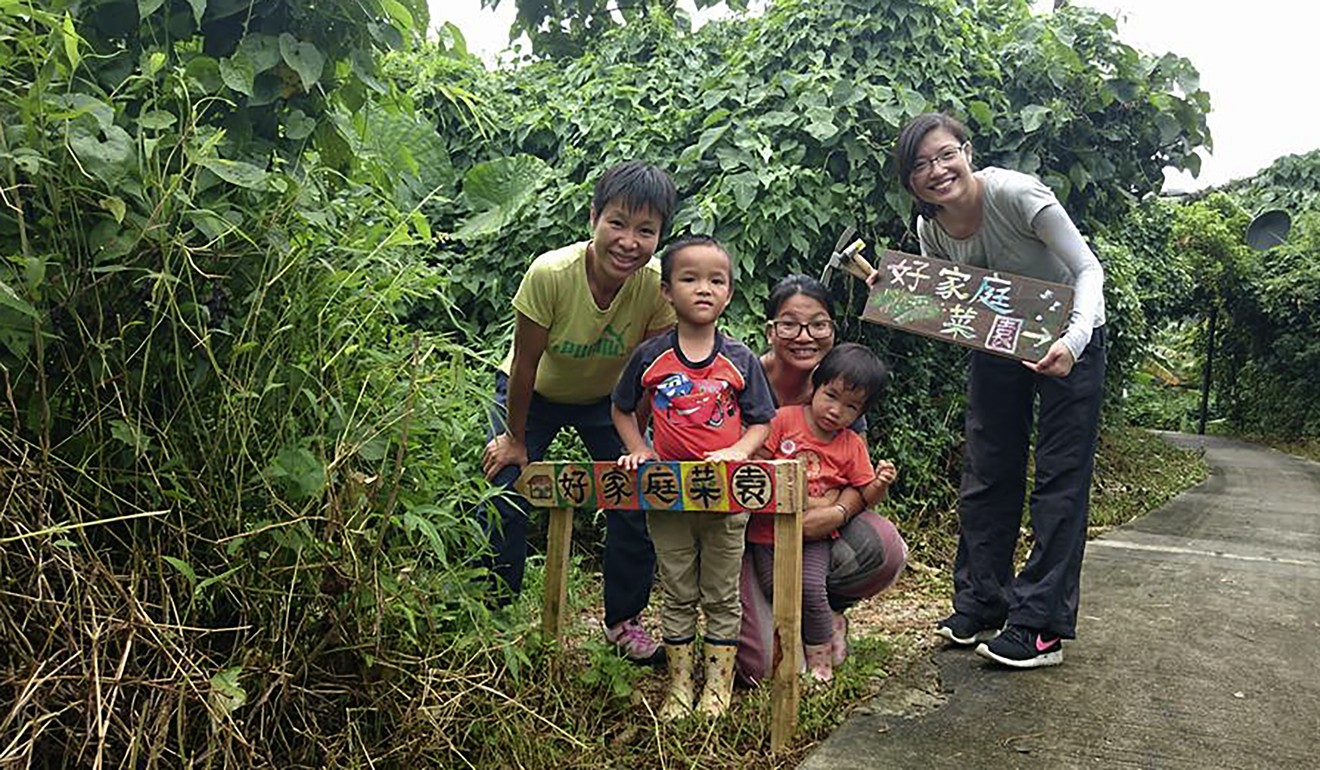
Finding happiness in the fields of Tung Chung: why one city dweller opted for life on a Hong Kong farm
Kevin Shum gave up his job of seven years at a trading company to immerse himself in rural life, and in the process discovered what he really loves
With the extra daylight and warmer weather, Kevin Shum Ka-wang is excited about getting back to what he really loves – his crops in the fields of Tung Chung.
“We are now ready to harvest the tomatoes, cabbages, carrots, kale and some garland chrysanthemum that were planted back during winter last year,” he says. “I am thankful for the weather this winter – it has been good for the plants as they are best grown when the mercury stays between 10 and 20 degrees Celsius.”
Shum’s adventure on the land began five years ago with the birth of his Good Family Farm. The 39-year-old gave up his position as an officer at a trading company after seven years to immerse himself in rural life.
“I believe that increased exposure to nature affects our well-being in a positive way,” he says. “Once you’ve become part of the environment, it’s interesting how you start to take cues from it, as it changes over time – such as by seeing buds bursting, the early bloom, extra sunlight, insects sunbathing, butterflies on the wind – these are all signs that winter has officially come and gone.”

His observations come from his years of experience on the farm, which is located in a local wildlife sanctuary. He now works there full time. Over the past few years he has been up in the mornings at the crack of dawn to take care of his fields.
“It’s time that we tear away from technology or reading emails, and even school work, to spend time outside to enjoy nature at its best ... We are so involved in our busy city lives that we often neglect the beauty of nature,” Shum says.
Mealworm farming made easy: grow a new protein source that's eco-friendly with hive from Hong Kong start-up
Located in San Tau Village, Good Family Farm not only has plenty to see, it also offers a variety of organic farming produce and natural ingredients.
“Living in the city, people often think there aren’t a lot of ways to explore nature, but I have come to realise that it’s closer than we think,” Shum says. “All it takes is an hour’s ride to make it into the countryside, where you can smell the grass, see the flowers blossom and personally become part of the environment.”
He and two friends started getting involved with agriculture in 2013, spurred on by the concepts of organic farming, a healthy diet and green living.

“It seemed that buying food with organic labels at grocery stores was some kind of novelty in this city, meaning that if you could afford to dig deeper into your pocket, you got healthier fruit and vegetables,” Shum says. “But if you’re not wealthy enough to splurge, you put your life at risk. That needs to change – all of us should have the right to eat food without pesticides.”
The idea to run his own farm came from a weekend hike.
“When I was hiking, I became fascinated with the way nature was changing due to the weather or the season, and I wanted to know more about it,” Shum says.
Hong Kong quest for the Tesla of food, so world can still feed itself in 2050 by changing diets and farming more sustainably
The farm has now extended its services to working with schools in an effort to teach students about gardening, farming and nutrition through planting activities.
It hosts two or three workshops every month, which include a Good Gardening project initiated last summer.
“I noticed that participants would come for half a day or a day trip, to see the flowers and the crops, but for our friends from elsewhere to really experience life in the village, we have now designed special workshops that last for between five and 14 days,” Shum says. “The plan is to allow them to stay in huts in the area, to understand the daily life of the villagers, which means cooking, farming, collecting leftovers from the market, and turning kitchen waste into fertiliser.”
The prices for these workshops range from HK$300 to HK$500. Participants can get involved in a range of activities, including removing weeds, distributing compost, and sowing crops.

